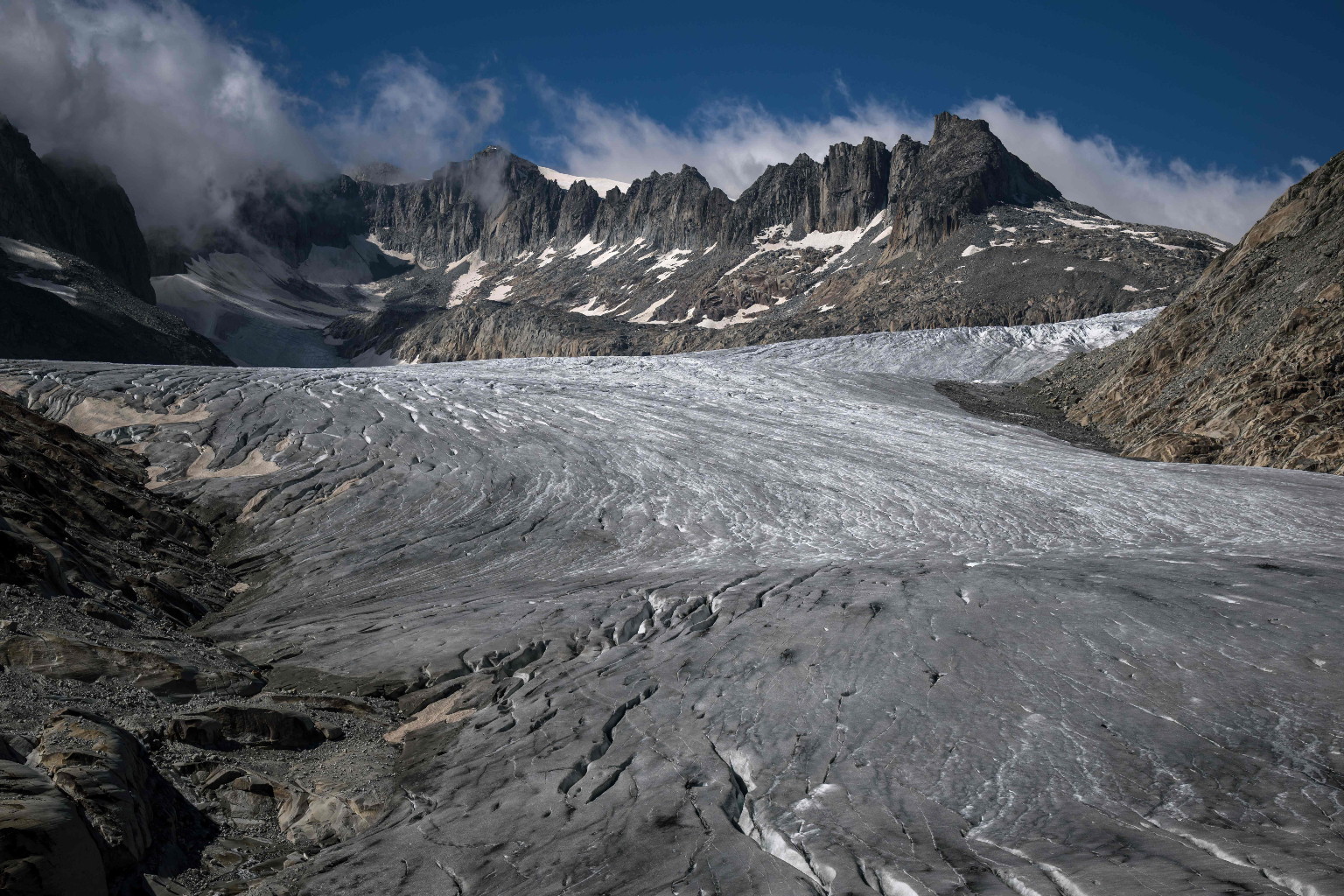Switzerland sees freezing point climb to record high above Alpine summits
Sign up now: Get ST's newsletters delivered to your inbox

Scientists say human-induced climate change is amplifying the record heatwaves seen in several parts of the planet in recent weeks.
PHOTO: AFP
Follow topic:
GENEVA (AFP) - Switzerland, which is caught in Europe's extreme heatwave, has seen the freezing point rise way above its highest summits, smashing a record set 27 years ago, meteorologists said on Monday (July 25).
Scientists say human-induced climate change is amplifying the record heatwaves seen in several parts of the planet in recent weeks.
Weather balloons rose to 5,184m above the Alpine country overnight before they found freezing point (0 degrees Celsius), MeteoSwiss said in a tweet.
That was nearly 70m higher than the previous Swiss record of 5,117m, measured on July 20, 1995, and 375m above the summit of Europe's highest peak, Mont Blanc in the French Alps.
It is extremely rare for the freezing point to be measured above 5,000m in Europe.
Leading Swiss glaciologist Matthias Huss warned this month that rising temperatures were causing freshwater glaciers to melt faster than ever.
"Glaciers in the Alps are so completely off from what we've seen before. I'm really alarmed by the situation," he tweeted on July 17.
"The measurements collected at Griesgletscher today show that even with respect to the previous record in 2003 we're one month ahead with melting. And no relief in sight."
Global warming is also pushing wild species that live in cold climes further up the mountains to survive. When they reach the summits, they have nowhere to go.
The international community has agreed that climate change poses an existential threat to human systems and the natural world - but there are a myriad ways to take action.
Meteorologists determine the zero-degree limit above Switzerland using weather balloons launched twice a day from Payerne, in the west of the country, the RTS public broadcaster said.
French meteorologists also measured 0 degree Celsius above 5,000m on Sunday over Bordeaux (5,056m) in the west. The warm air then moved east towards the Alps, MeteoSwiss said.

